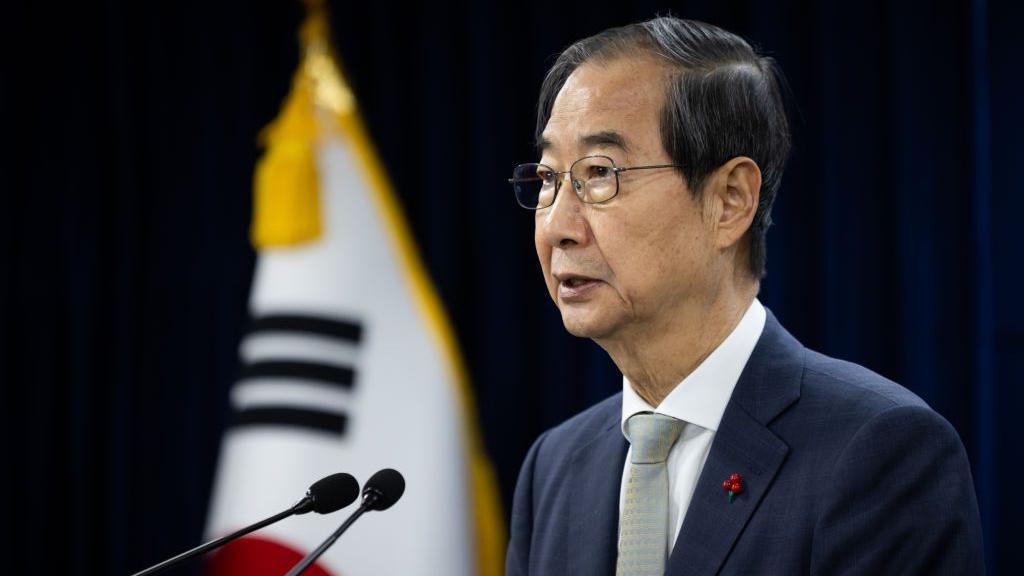S Korean president accused of ordering use of guns to stop martial law vote
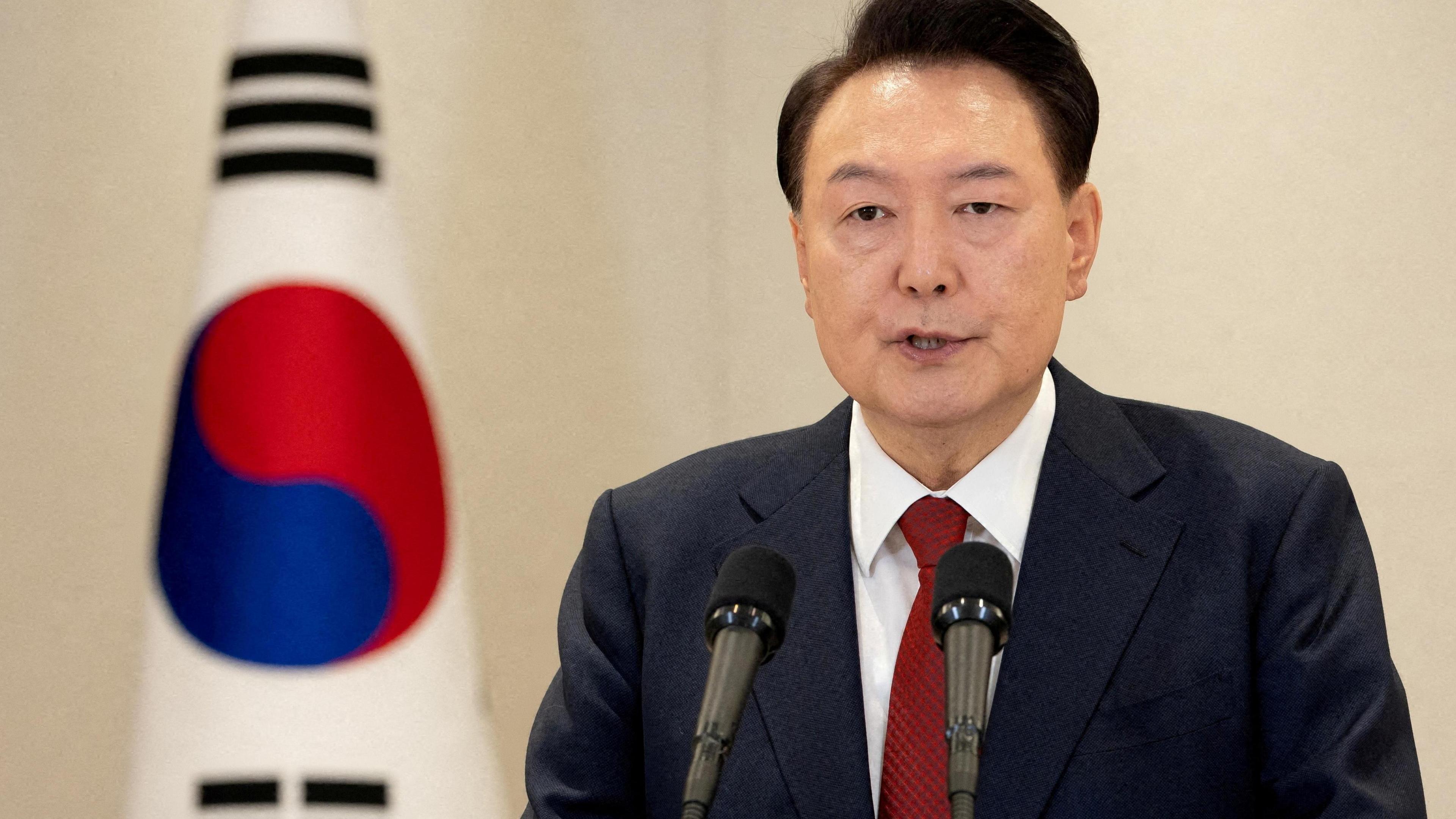
Suspended South Korean President Yoon Suk Yeol was impeached earlier in December
- Published
Prosecutors allege that South Korea's suspended president told the military to use guns while attempting to remove lawmakers from parliament as they were voting down his martial law decree.
On 3 December, Yoon Suk Yeol authorised soldiers to "break down the doors and drag them [politicians] out, even if it means firing the guns", according to an indictment as part of impeachment proceedings against him.
The orders are said to have been given to a general charged with blockading the National Assembly during Yoon's short-lived declaration of martial law - which was voted down by MPs after 190 were able to enter the building.
Yoon's cabinet later rescinded his decree, and MPs have since voted to impeach him.
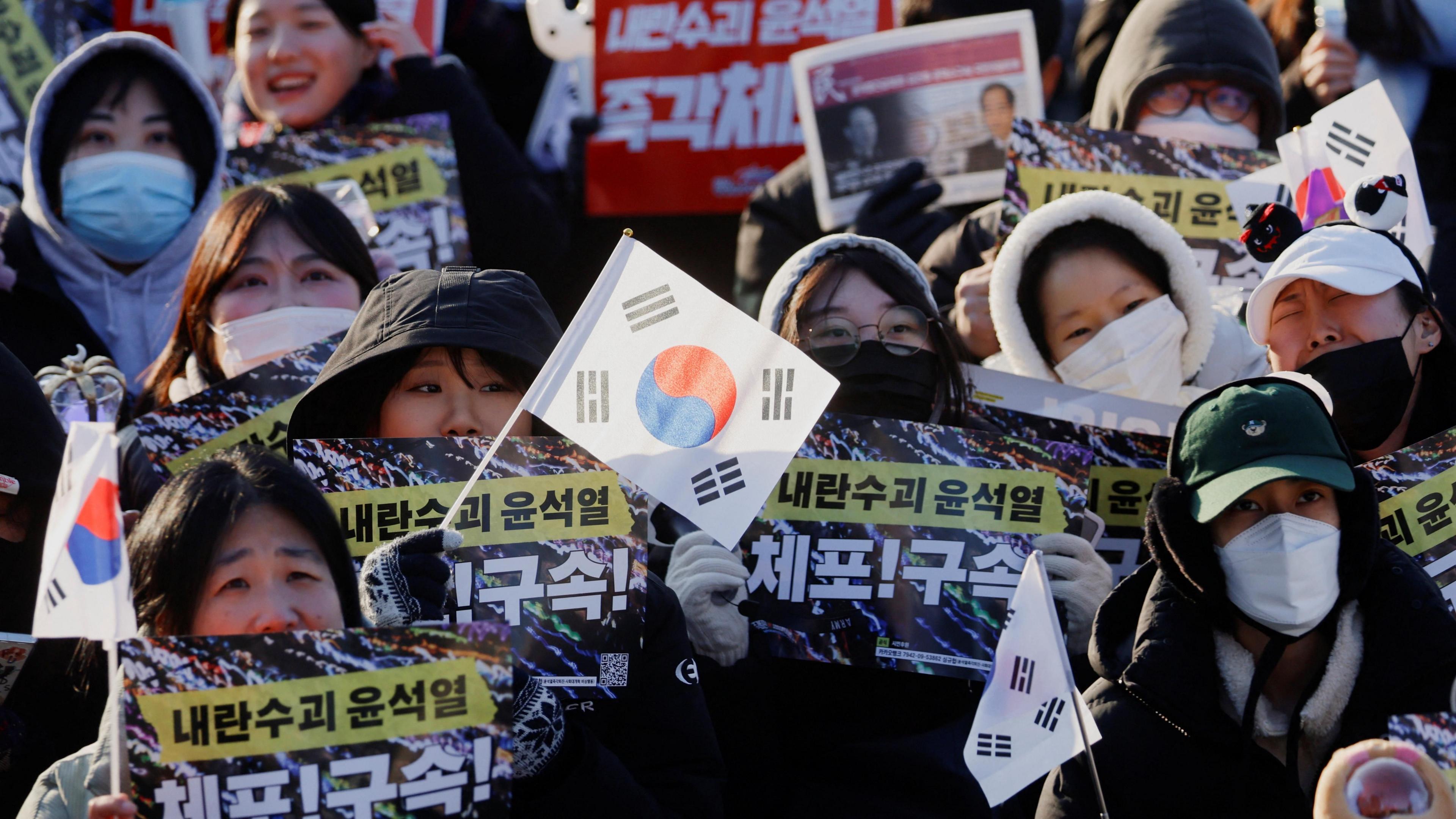
Yoon's martial law decree sparked protests and weeks of political turmoil
South Korea's impeachment process means Yoon has been suspended from his duties while a constitutional court decides whether to confirm his impeachment. If it does, he will be permanently removed from office.
His decision to declare military rule - which he claimed at the time was to counter "anti-state forces" in parliament - has been seen by some as an attempt to break a political stalemate since the opposition won a landslide in April.
After his late-night speech announcing the decree, opposition MPs and protesters converged on the National Assembly, but were met by police and military personnel barricading the building.
When MPs were able to force entry, prosecutors say Yoon told the chief of the capital defence command, Lee Jin-woo, that military forces could shoot if necessary to enter the National Assembly.
"Tell (your troops) to go to the voting chamber, four for each (lawmaker) and carry them out," Yoon is alleged to have told Gen Lee.
"What are you doing? Break down the doors and drag them out."
After MPs voted to lift martial law, Yoon told General Lee to "keep going" as he could declare martial law multiple times, the indictment says.
Prosecutors say the indictment draws evidence from former defence minister Kim Yong-hyun, who was also indicted on Friday for allegedly telling Gen Lee to follow Yoon's orders multiple times on 3 December.
He also allegedly ordered commanders to seize the National Elections Commission building and arrest its employees, using cable ties, eye masks, ropes, baseball bats and hammers which had been prepared by the military.
Kim will stay in detention while awaiting his trial, the investigators said in a press release.
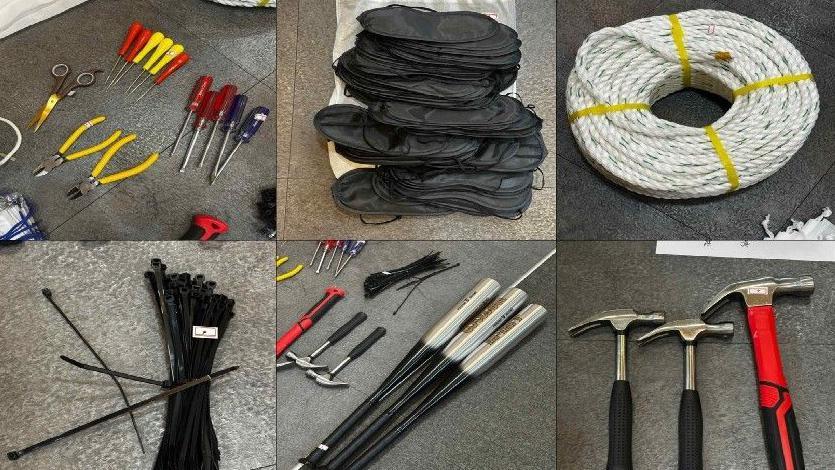
The military prepared tools to arrest members of the National Electoral Commission
The martial law decree has plunged South Korea into a weeks-long political turmoil.
Opposition politicians immediately called Yoon's declaration illegal and unconstitutional. The leader of his own party - the conservative People's Power Party - also called Yoon's act "the wrong move".
The former defence minister Kim Yong-hyun was also indicted on Friday, according to the Special Investigation HQ, installed at the country's prosecution service.
The same day, the National Assembly also voted to impeach its acting president, Han Duck-soo.
Han was supposed to lead the country out of its political instability, but opposition MPs argued that he was refusing demands to complete Yoon's impeachment process.
He has agreed to step aside, which means the country's finance minister, Choi Sang-mok, will become acting president.
Thousands of protesters have held rival rallies in South Korea, with some demanding Yoon's arrest.
Attending a protest in Seoul on Saturday, Kwon Jung-hee told the BBC Han's impeachment felt like "one small mountain" had been climbed.
"But there are still too many mountains to climb, so I can't just stay at home - I've come out with the mindset of protecting the country," she said.
The political uncertainty has also caused the economy to suffer.
The currency has plunged to its lowest level against the dollar since the global financial crisis 16 years ago.
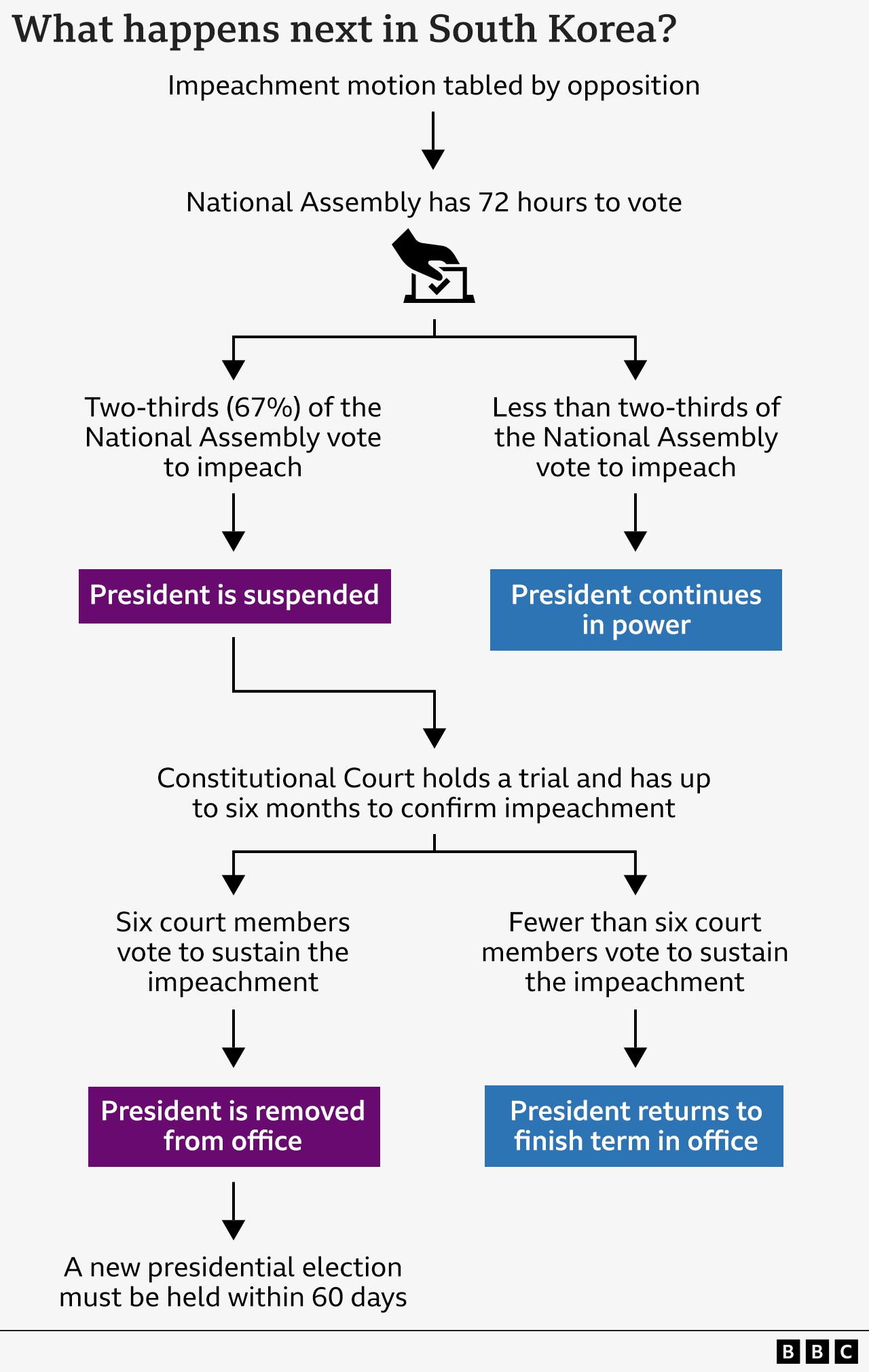
Related topics
- Published4 December 2024
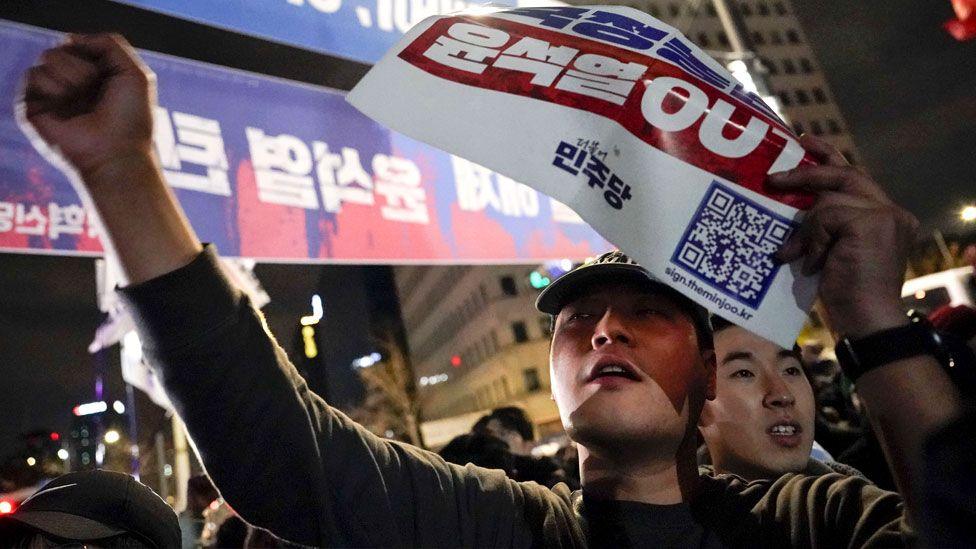
- Published16 December 2024
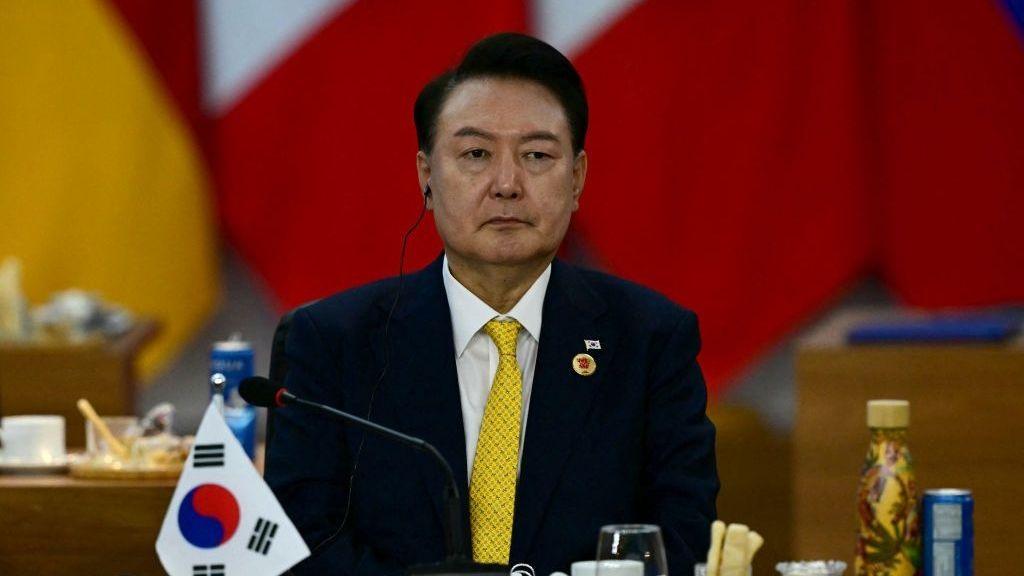
- Published27 December 2024
